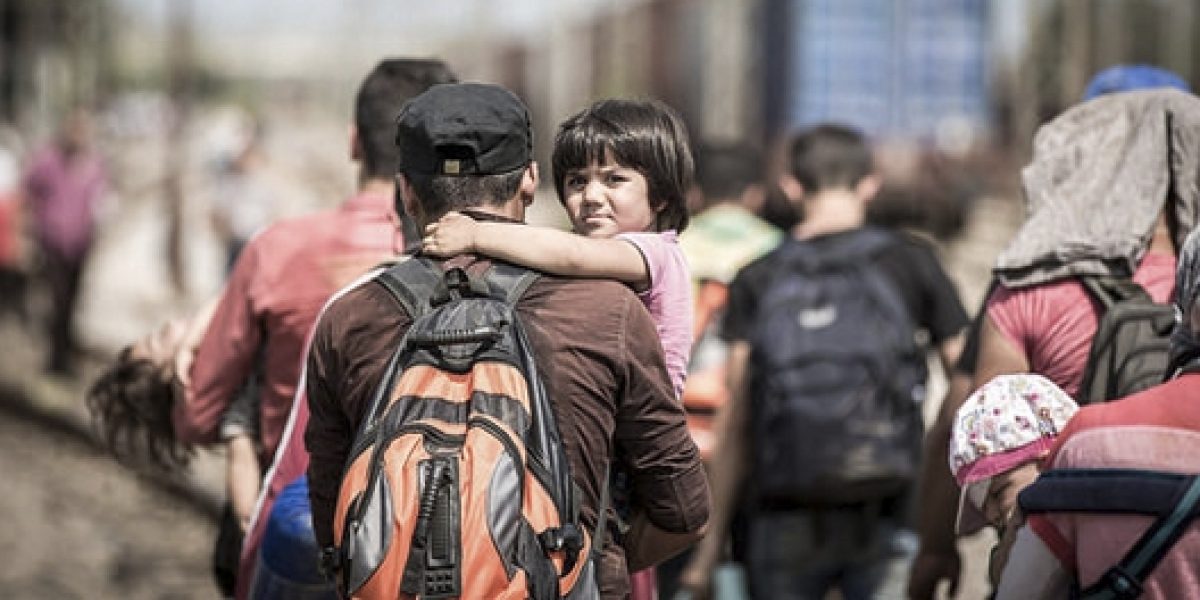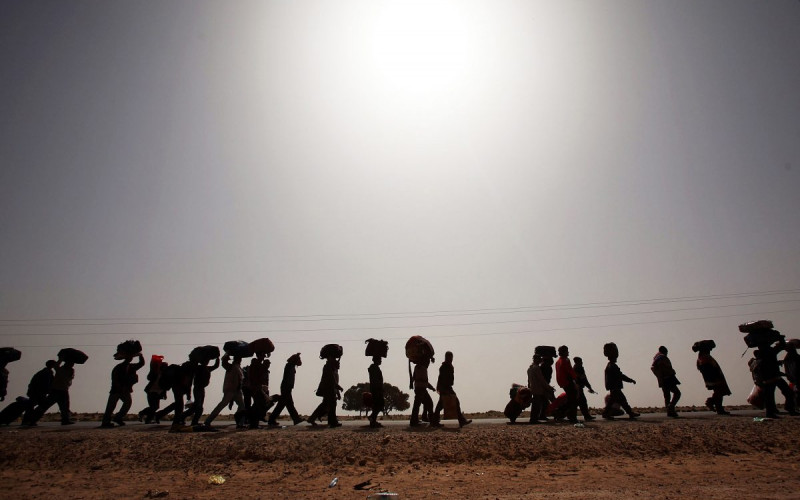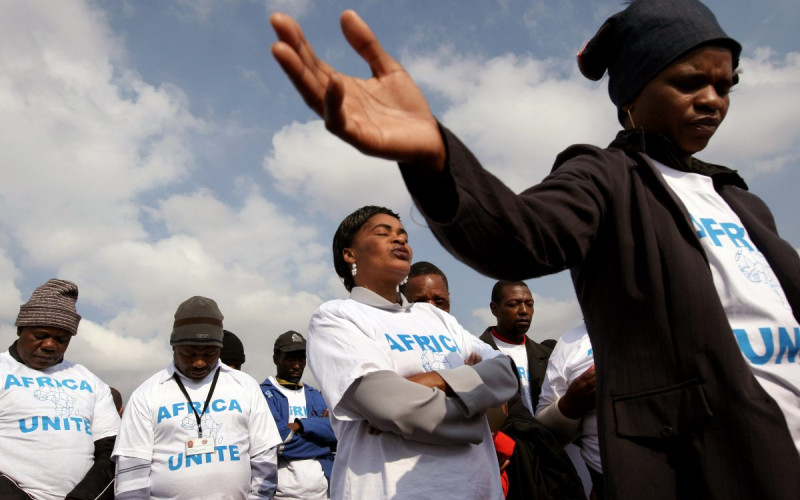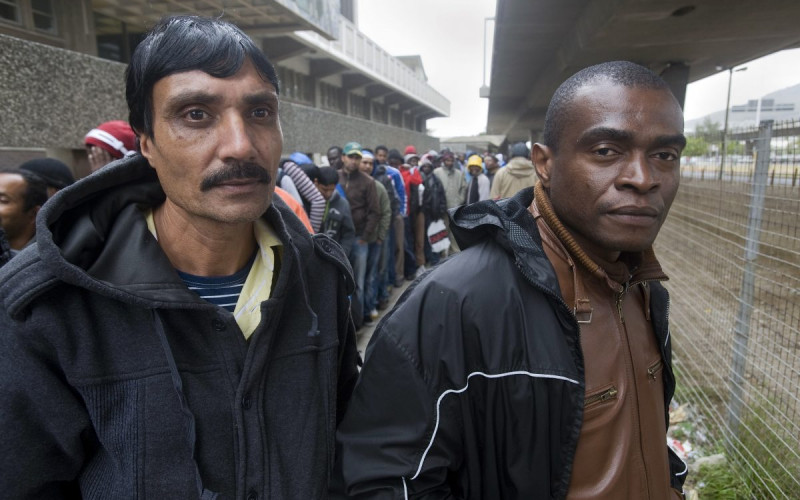News footage of groups of young men climbing fences and breaking into trucks at Calais look dramatic, but the ‘swarm’ of migrants at Calais, as depicted by British Prime Minister David Cameron, is in fact 3,000 to 5000 people, many of whom are not actually trying to get into the UK at all. A sizeable minority have applied for asylum in France and are staying in the informal settlement near Calais known as the Jungle while waiting for the outcome of their application.
All over Europe, fences are going up, physically and metaphorically. Hungary expects to complete its new border fence by the end of August. Macedonia announced a state of emergency and deployed riot police at the border last week. Until then it had dealt with the influx by giving migrants 72-hour transit papers, enough time for them to buy a ticket, cram onto a train and cross further into Europe to become somebody else’s problem. First among those ‘somebody else’ is Germany, which expects to receive more than 750,000 new asylum applications in 2015.
A Europe unable to cope?
The challenge is certainly great for Germany, where new arrivals are sleeping on floors in makeshift accommodation. But it is in southern Europe that a real humanitarian crisis is unfolding. The EU border agency, Frontex, have recorded 340,000 ‘migrants detected’ from January to July this year, almost three times as many as the same period last year. Of those, around 160,000 have taken the relatively new route from the Middle East and Turkey to the easternmost islands of Greece. More than 50,000 have arrived in Greece in the month of July alone. Wracked by economic and political crisis, Greece is rife with xenophobic attitudes towards migrants.
But the people arriving on Greek holiday islands in leaky dinghies are not migrants. While those taking the route from Libya to Italy have tended to be a mix of refugees, especially from Syria and Eritrea, and economic migrants, particularly from West Africa, the composition of the boat people arriving in Greece this August has been, according to the UN High Commissioner for Refugees, over 80% Syrians, 15% Afghans and the rest mostly Iraqis. The vast majority will qualify for refugee status.
The crisis Europe is not facing
The United Kingdom is not facing an invasion of illegal immigrants launched from Calais. Nor is the rest of Europe facing a migration crisis. Certainly, there are well-established economic migration routes from the poorer parts of the world to the richer. Since there are no longer any legal ways for low-skilled migrants to enter Europe, many choose to travel irregularly.
The journey they make has been made both easier and more dangerous for the migrants by the political collapse of Libya and turmoil in Egypt. Human smuggling networks can work with near impunity in both countries, mistreating migrants en route, before packing them onto unseaworthy vessels and steering them towards European waters in hope of rescue. An estimated 2,500 people have perished in the attempt so far this year.
A humanitarian crisis
Southern and South-Eastern European countries, particularly Greece, are facing a humanitarian crisis, where saving lives and providing food and shelter must take precedence over immigration control, regardless of whether those arriving are ‘illegal’ economic migrants or refugees. Despite the rush to build fences, secure borders and pass the buck, there is a growing appreciation across European capitals that ‘illegal migration’ is not a crime punishable by a watery death sentence. Prompted by one of the largest Mediterranean disasters in history, where 800 people drowned, the EU relaunched a large-scale search-and-rescue operation in April.
A global displacement crisis needs global solutions
The reason for the enormous rise in the number of people making the perilous journey across the Mediterranean is not economic migration, but war, persecution and violence. In short, Europe is experiencing its share of a global displacement crisis driven by an upsurge in conflict across the world, particularly in sub-Saharan Africa and the Middle East. The world has not seen so many people uprooted by conflict and persecution since the end of World War Two.
More than 80% of all refugees remain in their near region, many in refugee camps, others self-settled in nearby urban centres. But life in camps is getting increasingly destitute and devoid of hope for many refugees, particularly those fleeing never-ending conflicts, like those in Somalia, Syria and Iraq. Syria’s neighbours are coping with around four million refugees – in Lebanon refugees make up one in four of the country’s population. Humanitarian aid, while at record levels, does not cover the basic needs of refugees.
If European governments want to see a sustainable and ethically viable end to the chaotic and deadly passage across the Mediterranean, a first step would be to provide more financial support to refugee hosting countries, not only to support refugees, but to bolster domestic stability in host-countries. Beyond that, a global burden-sharing mechanism for resettling refugees would both alleviate the pressure on countries of first asylum and make refugee arrivals in Europe more orderly and manageable.
For this to happen, European governments must first acknowledge that the situation at Calais, Lampedusa and Kos are not a European migration crisis, but a global refugee crisis.








